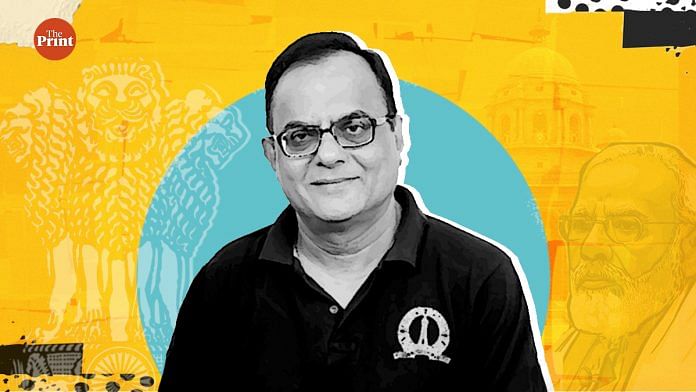New Delhi: Almost two decades ago, a team of scientists at the Indian Institute of Science (IISc), Bengaluru, created history when they successfully generated electricity by passing fluids through tiny carbon nanotubes — a phenomenon that has since come to be known as the ‘Sood effect’.
The physicist who led the research — Ajay Kumar Sood — has now been appointed the Principal Scientific Adviser (PSA) to the government.
Sood, a member of the Science, Technology and Innovation Advisory Council to the Prime Minister, has been appointed to the post for a period of three years. He succeeds renowned biologist K. VijayRaghavan.
The PSA’s office aims to advise the prime minister and the cabinet on matters related to science, technology, and innovation with a focus on the application of science and technology in critical infrastructure, economic and social sectors, in partnership with government departments, institutions, and industry.
Born in Gwalior in 1951, Sood did his graduation and postgraduation from the Panjab University, Chandigarh, before joining the Indira Gandhi Centre for Atomic Research, Kalpakkam in 1971 as a scientist. He got a PhD from IISc in 1982.
In 1988, the physicist joined the IISc as an associate professor.
Sood’s body of research revolves around condensed matter physics — a field that deals with the properties of matter that arise from electromagnetic forces between atoms — with a specialisation in nanotechnology.
In his experiments at IISc, Sood and his team generated electrical signals by passing liquids through nanotubes — pathbreaking because generating electricity usually involves passing electrons through metal conductors. The discovery also paved the way for self-powered pacemakers.
Apart from this, Sood is also credited with the development of an ultrasensitive immunoassay — a biochemical test that detects an antibody — by subjecting fluids to an electrical field. Sood currently holds a patent for this device.
Sood has been serving in the governing bodies of various institutions, including the Karnataka government’s Vision Group on Nanotechnology, DST’s Science and Engineering Research Board (SERB), Nanomission Council, and Nano Science Advisory Group.
The scientist is also a fellow of many science academies and institutions such as the Indian Academy of Sciences, the Indian National Science Academy, the World Academy of Sciences, and the National Academy of Sciences, India.
Sood has over 456 scientific papers published and holds seven patents. He was awarded the Shanti Swarup Bhatnagar Prize — the highest science award in India — in 1990.
In 2013, he received the Padma Shri award for his contribution to the field of science.
(Edited by Uttara Ramaswamy)
Also Read: ISRO-IISc team develops prototype of bacteria-infused bricks for Martian, lunar soil



